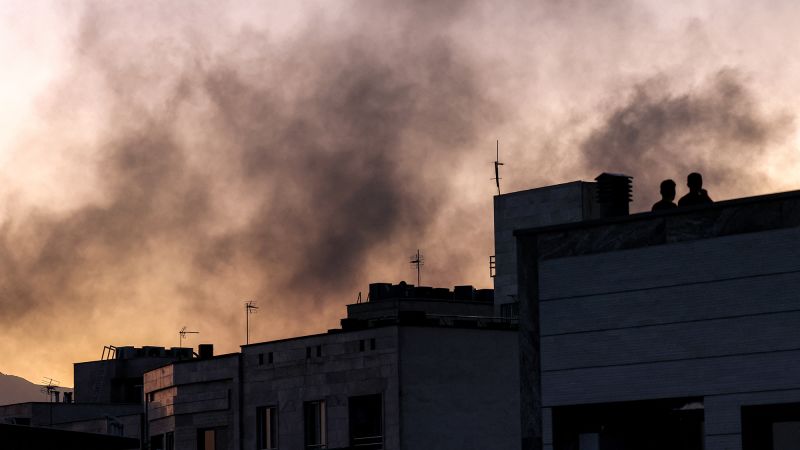CNN
—
People trying to call friends and loved ones inside Iran have instead been met with strange, pre-recorded voice messages, which some experts believe may be part of the regime’s wider internet blackout.
In a recording of a telephone call heard by CNN, a person outside of Iran hoping to hear their friend’s voice on the other line, was instead met with a robotic voice. “Hello, and thank you for taking the time to listen,” the voice says.
“Life is full of unexpected surprises,” it continues, “and these surprises can sometimes bring joy while, at other times, they challenge us.
“The key is to discover the strength within us to overcome these challenges.”
The unsettling message, which lasts nearly 90 seconds, then goes on to recommend the listener close their eyes and imagine themself in a place that brings them “peace and happiness.”
While different variations have been reported, this version appears to have been the one most commonly heard by people outside Iran placing calls to mobile phones inside the country on Wednesday and Thursday. No similar message was reported when calling landlines.
The messages were widely heard after Iran imposed nationwide temporary restrictions on internet access on Wednesday, citing security concerns. This meant WhatsApp was down, so people abroad began calling their friends and family in Iran directly, rather than via the app. The message is reportedly not heard if the call is made through an app.
The initial assumption for many Iranians was that the messages were the result of an Israeli cyberattack. Others see the Iranian authorities as being behind them.
Alp Toker, the founder and director of NetBlocks, a non-governmental organization that monitors internet governance, believes the messages are an attempt by the Iranian government to limit telecommunications, as part of the wider internet censorship measures.
“The point is, when the internet is cut, the phones need to go somewhere, and that will go to the fallback message on the device,” he told CNN.
Toker added it was a phenomenon NetBlocks had seen in different places around the world when internet access was cut. “Sometimes it will have an advert for summer vacations and sometimes it will have some other nonsense,” he said.
According to Toker, the messages are text-to-speech generated. He believes they appear to have been set up rapidly.
“It’s in the format of a normal gateway answering message of the type you might get from a national gateway when a phone doesn’t answer,” he said. “It seems that they’ve gone with the settings, and there’s a little box where you can put in the settings and they’ve put something in there, pre-AI generated.”
Meanwhile, a UK-based telecommunications expert who listened to a recording of the most commonly heard message told CNN that “the call appears to be hijacked after the second ring, which is highly unusual and deeply concerning. This suggests interference at the network level – well before a proper connection is established.” The expert asked not to be named for safety reasons.
Neither Israel nor Iran has made a public statement on the recorded phone messages.
Access to international internet services had been partially restored in parts of Iran on Saturday “after approximately 62 hours of severe disruption,” NetBlocks said.
“While some regions have seen improvements, overall connectivity remains below ordinary levels, continuing to hinder people’s ability to communicate freely and access independent information,” it added.
The semi-official Tasnim news agency reported that international internet services would resume by 8 p.m. local time Saturday, citing the communications minister. However, Tasnim later reported that this was not the case, citing the same minister.
According to the communications ministry, Iranians abroad can now contact their families inside Iran through domestic messaging apps.
The Iranian government has frequently restricted internet access in the country. During nationwide protests in 2022, authorities implemented multiple internet shutdowns in an effort to stifle dissent.

